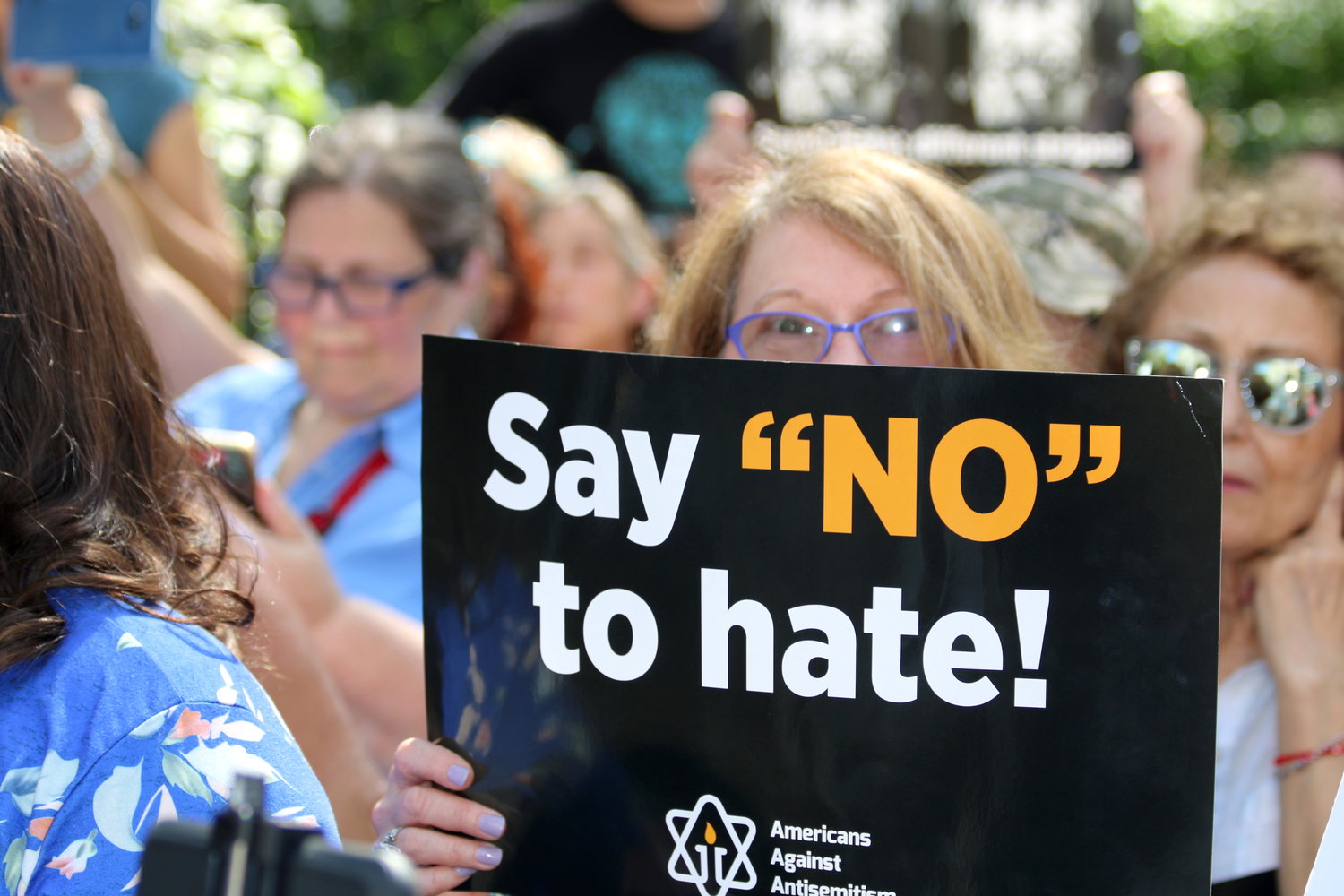FBI: Anti-Semitic hate crime up 14% in 2019
The number of anti-Semitic hate crimes in the United States increased significantly in 2019, according to the FBI, in a year that saw three lethal attacks against Jews.
Anti-Semitic incidents again comprised the majority of hate crimes based on religion. In addition, the number of hate crime murders overall more than doubled nationwide last year.
But the Anti-Defamation League cautioned that the FBI’s numbers probably represent just a fraction of total hate crimes committed in the country.
The FBI recorded 953 hate crimes against Jews in 2019, a 14% increase from the 835 recorded in 2018 and similar to the 938 in 2017. In 2019, hate crimes against Jews comprised 62% of all hate crimes based on religion, up from 58% in both of the previous two years.
Last year saw a series of lethal anti-Semitic attacks that sparked fear and anxiety among American Jews. A synagogue shooting in Poway, California, killed one person exactly six months after the October 2018 synagogue shooting in Pittsburgh in which 11 Jews were murdered.
In December, a shooting in Jersey City that ended at a kosher supermarket killed two Jews and two others. Later that month, a stabbing at a Chanukah party in Monsey killed one.The New York-area attacks came amid a spate of anti-Semitic harassment and assaults in Orthodox neighborhoods in Brooklyn.
“The surge of hate in the last few years is unmistakable,” ADL CEO Jonathan Greenblatt told the JTA on Monday. He said last year’s attacks show that Jew-hatred transcends political allegiances.
There are those who want to pin this all on President Trump. I think that’s wrong,” he said. “No one was wearing MAGA hats in Brooklyn last December when we saw a wave of assaults.”
Just days after 2020 began, 25,000 people marched across the Brooklyn Bridge to protest anti-Semitism in New York City and elsewhere.
The ADL said the FBI numbers are almost certainly a significant undercount of the true number of hate crimes in the United States because many municipalities do not submit hate crime data to the FBI.
“We have an incomplete picture,” Greenblatt said. “That being said, I think the trends over two decades are telling. Hate remains a reality for people from marginalized communities in this country, particularly Jews, who represent somewhere between 1.5 and 2% of the population and [experience] a disproportionate number of the hate crimes.”

 48.0°,
Overcast
48.0°,
Overcast 




